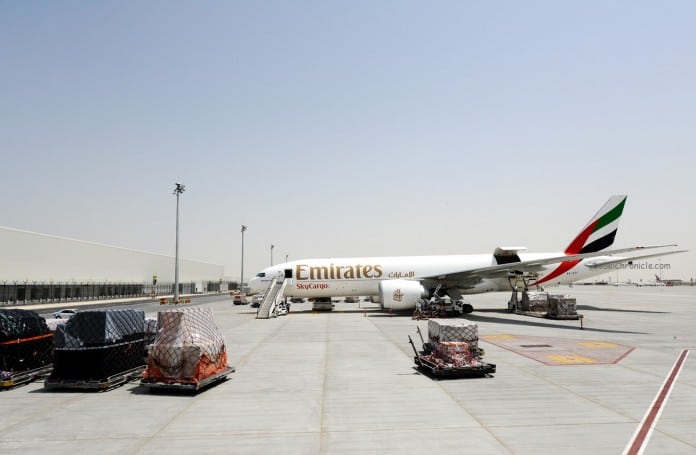
Emirates Airline, the largest carrier in the Middle East announced on Sunday it is suspending flights to Ebola-struck Guinea until further notice. At the same time, it started daily service to Nigeria and its capital, Abuja, where one of the Ebola patients had died.
Emirates is the first major international airline which shut down services to Guinea to prevent possible spreading of the deadly Ebola virus. Currently, the outbreak is sweeping through West Africa, killing a large number of the infected people due to poor conditions and lack of adequate treatment in the affected communities. Starting in Guinea, the epidemic has spread to Sierra Leone and Liberia and on Friday, authorities said a man contracting the virus died in Lagos, Nigeria. He arrived in the country on a flight from Liberia, a fact, which raised fears of the compromised safety of international air travel. Although many people expressed concerns that the infection can easily spread through sick passengers to other parts of the world, health experts explained that the risk is actually very low.
Since March, according to figures by the World Health Organization, Ebola has killed at least 730 people in the three West African countries and infected more than 1300. This is the worst Ebola epidemic ever recorded, but the risk of a global outbreak is low, experts say. The infection isn’t airborne and the so far, most of the cases have been identified within closed communities. WHO isn’t recommending any travel restrictions or border closures. Scientists from the International Air Transport Association (IATA) explain that even a sick individual flies onboard a plane the risk to other passengers is very low.
However, Emirates decided to shut down all of its flights to Guinea. This, experts say, is a bit too much of a precaution measure, as there is a slim chance of spreading the virus onboard. Flights to the capital Conakry are suspended until further notice; still the carrier kept with its planned expanding and announced daily flights to Nigeria’s Abuja. If there is really a risk of a global outbreak, Nigeria should also be off limits, experts say. It is after all, close to the affected countries and it also had an Ebola death last week.




































